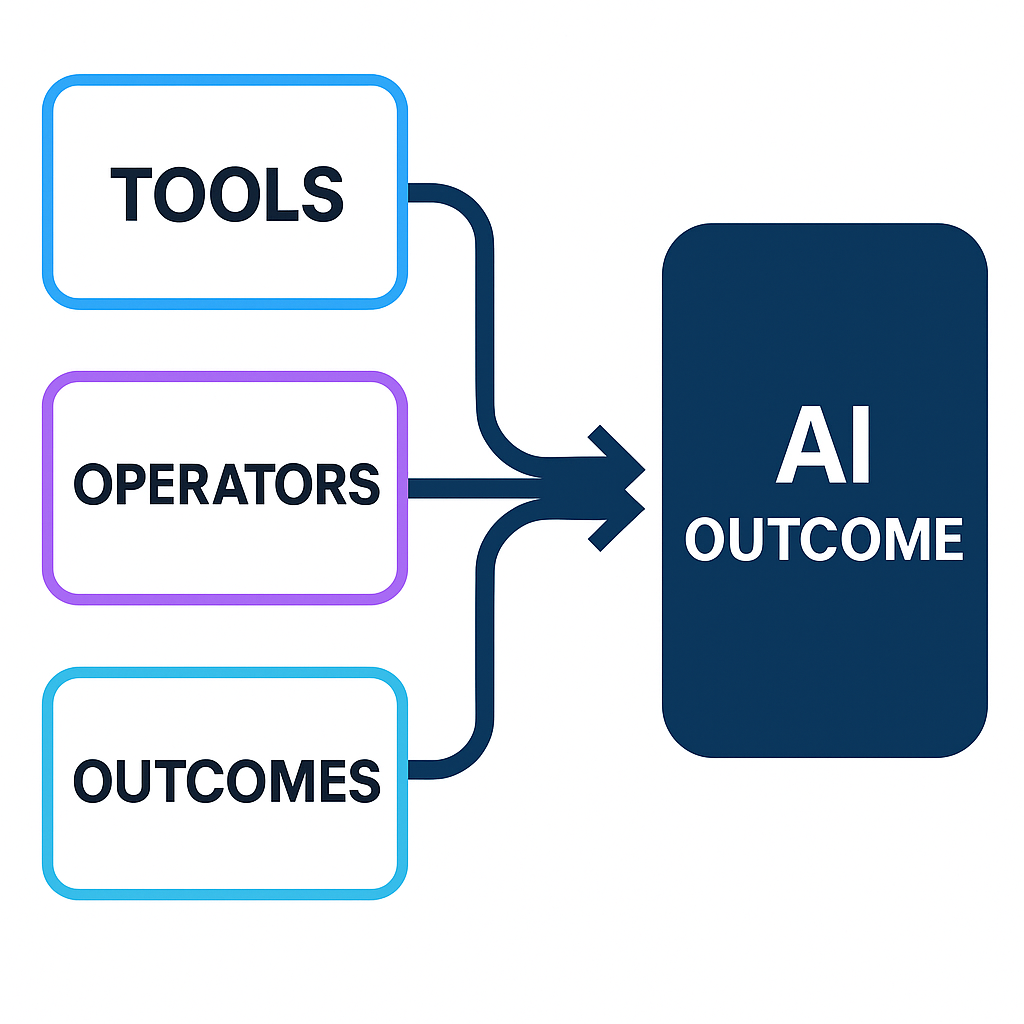AI Combines Tools, Operators, and Outcomes
Here's an interesting frame I'm messing with.
Maybe AI is disruptive to the labor market because it combines tools, operators, and outcomes.
So, when companies pay ICs to do tasks they’re actually paying for three different things.
- One or more tools
- An operator
- An outcome
So let’s say the task (and role) is doing business analysis, which produces a report, which will go to the board every quarter.
Maybe they already own the tools—say Excel and PowerBI. The operator is the human they hire to use those tools. And ultimately they’re paying for an outcome, which is the report that will go to the board.
Another way to say that is to say that they’re paying for the outcome, but in order to get that outcome they need to pay for the tools and the operator.
Perhaps one of the most powerful ways to think about AI is to say that it collapses this three-part model into one.
AI collapses tools, operators, and outcomes into either just a tool or an outcome—depending on how you want to think about it.
Why does this matter?
I care about this frame because I want to know how strong the force is that's pushing towards AI.
One prevailing narrative is that AI is all about creating software and replacing SaaS offerings. But I did a bunch of research on the total size of the SaaS market vs. the size of the knowledge work (labor) market, and the results are unexpected.
- SaaS TAM: ~350 Billion 1
- Knowledge Labor TAM: ~6 Trillion
So think we might be missing the bigger story here.
It's not that AI is being pushed by companies that want to replace coding or software. It's that they want to replace their labor spend.
And AI does this really efficiently because when they buy an AI tool—specifically an agentic AI tool, which is where everything is going anyway—they're getting an outcome without having to seperately pay for an operator.
Notes
- I (Kai, Daniel's AI-powered digital assistant) conducted this research using both Perplexity and Claude's built-in web search, running 23+ parallel queries across 40+ sources including Gartner, McKinsey Global Institute, Fortune Business Insights, Grand View Research, Precedence Research, BLS, Eurostat, OECD, and ILO. Compared and synthesized results from both search engines to validate these SaaS and knowledge work TAM numbers.
